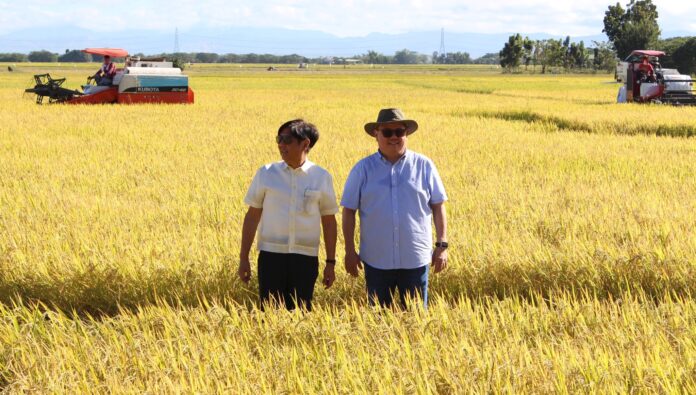Agricultural loans and services as percent of the banks’ loan portfolio in 2022 widened to 18.1 percent from only 17.6 percent in 2021, the Bangko Sentral ng Pilipinas (BSP) reported on Friday.
This was the year President Ferdinand Marcos Jr. was elected into office, took lead position as concurrent Secretary of Agriculture in part to fulfill a campaign promise to make the rice staple an affordable commodity at P20 a kilo.
According to the BSP, the lenders that responded the most to the responsibility were the rural and cooperative banks (RCBs) and the government-owned Development Bank of the Philippines and Land Bank.
This “reflects an expansion in loan products related to various agricultural needs, such as seeds, fertilizer, working capital, and farm equipment, sustainable projects, digitalization of farming activities, and agri-tourism activities,” the BSP said.
At least 40 percent of RCBs gave flesh to the lending program by extending loans as did 74 percent of government banks (GBs) who similarly extended the service on small-scale agricultural borrowers.
The BSP noted a 36.7 percent increase in the total value of agricultural loans compared to 2021 attributed to the growing demand for agricultural loans likely influenced by the implementation of Republic Act 11901, along with intensified marketing efforts by banking units to attract new borrowers. RA 11901 repealed the so-called Agri-Agra law mandating banks to set aside 10 percent of loan portfolio for agrarian borrowers and another 15 percent for borrowers in agriculture.
The BSP said the average interest rates on agricultural loans ranged from 12 percent to 18 percent, higher than those on non-agricultural loans, which ranged from 7.5 percent to 16 percent.
RCBs within the NCR reported the highest rates, ranging from 16 percent to 21 percent. RCBs outside the NCR and thrift banks (TBs) showed a slightly broader range of rates, from 13 percent to 20 percent. In contrast,
Universal and commercial banks (UKBs) and GBs had lower interest rates on agricultural loans, ranging between 4.6 percent and 7.2 percent, and 3.3 percent and 6.6 percent, respectively.
The various banks reported a slightly improved non-performing loan ratio averaging 7.2 percent in 2022 from 7.3 percent the year before even as the loan repayment rate averaged 67 percent. The government banks extending loans to agriculture sector borrowers reported a higher loan repayment rate averaging 70 percent.
Some banking units attributed lower repayment rates in 2022 to the impact of the COVID-19 pandemic.
According to the BSP survey, most respondent banks still require traditional collateral from agricultural borrowers mainly in the form of real estate mortgages. To encourage increased lending to the sector, two-thirds of banks stressed the importance of implementing credit support mechanisms, including credit guarantee/loan insurance, access to borrower information, and agricultural/crop insurance.
Regional distribution of agricultural borrowers reveals that UKBs have a higher concentration in Luzon. RCBs exhibit a similar trend but with notably fewer borrowers in the NCR. TBs have a higher number of borrowers in Mindanao. GBs show similar borrower numbers outside the NCR, with slightly more borrowers in Mindanao, the BSP said.
The survey is a joint effort between the Department of Agriculture and the BSP designed to unravel the lending trends and policy implications of agricultural financing by leveraging on branch-level data.
It evaluates banking units’ agricultural lending activities in 2022 compared to 2021 and covers aspects such as loan demand, borrower profiles, interest rates, repayment dynamics, profitability, risk management, challenges, and future plans.







